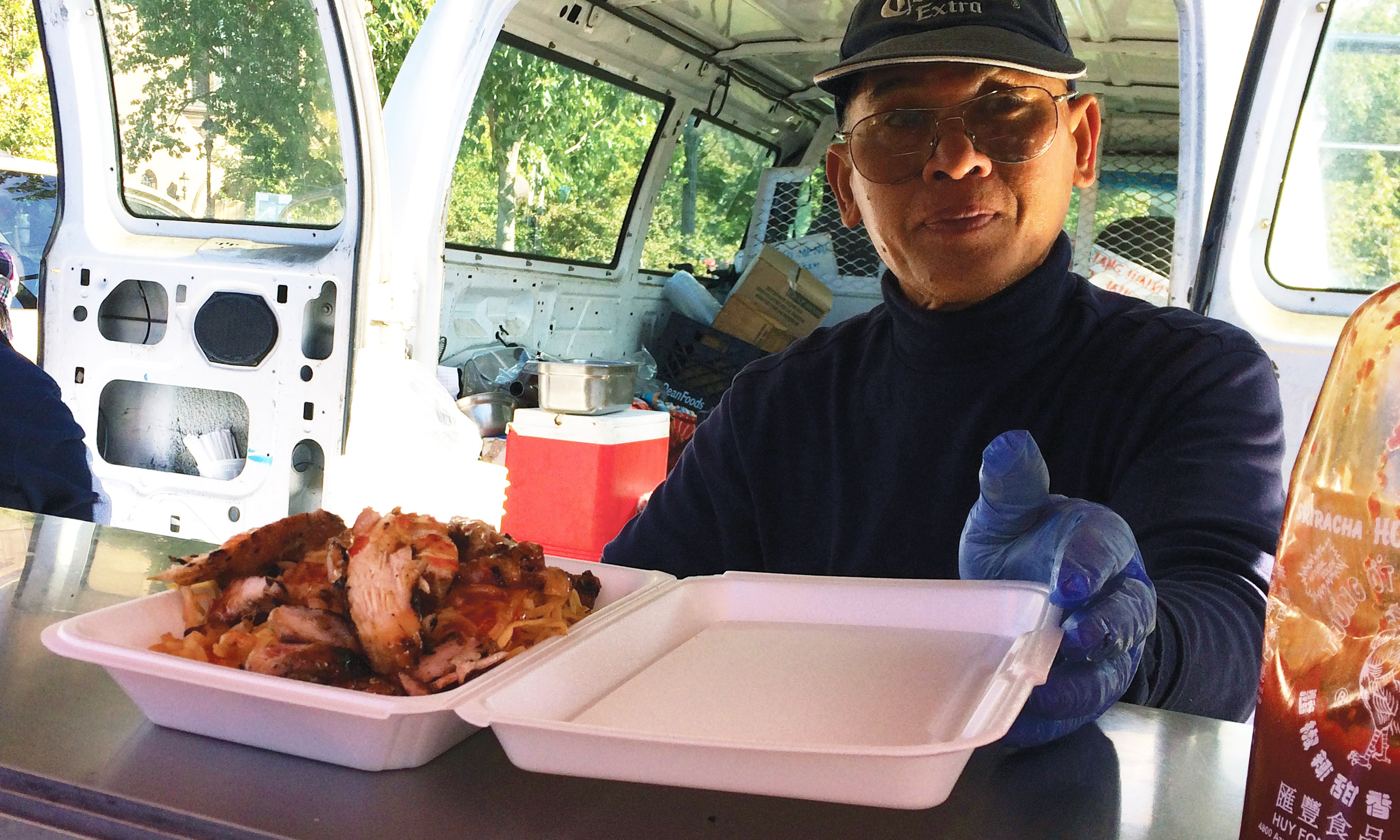
For only the second time ever, the Yale College Council, Graduate Student Assembly and Graduate and Professional Student Senate have joined forces to call for change on campus.
But while their last joint project was a September 2014 request for a University-wide student center — now being answered with the Schwarzman Center -— the common resolution the three groups have now endorsed has humbler goals: the eradication of Styrofoam food containers from campus.
A resolution to form a committee that would investigate a possible ban on Styrofoam containers at Yale passed the GPSS in May, the GSA last week and the YCC on Saturday. Although no Yale dining halls use Styrofoam products, the GSA resolution cited a “waste audit” of Science Hill dumpsters by the Yale Office of Sustainability which found high concentrations of Styrofoam waste on Science Hill and at the Medical School campus, where small, independent food trucks often sell their food in such containers on or near University property.
“All students want a more sustainable campus,” said Bryan Yoon FES ’18, the resolution’s author and chair of the GSA’s Facilities and Healthcare Committee. “We hope [the resolution] will help start a new dialogue across the divisional boundaries that consolidate the voices of all students regarding our shared concerns.”
Styrofoam is a type of inexpensive lightweight plastic that does not degrade in landfills, but can be dangerous to human health and the environment. If a ban were implemented, it would apply only to the food trucks outside Ingalls Rink on Science Hill, as those vendors rent parking spaces from Yale. The food trucks at the Medical School often park on the street, off Yale’s campus, Yoon said.
According to the GSA resolution, many of these food vendors are reluctant to switch to more sustainable options due to cost and competition. Yoon acknowledged that a waste management committee, if formed, would have to be cautious when working with these vendors and cognizant of costs associated with moving away from Styrofoam. To do this, Yoon suggested that the committee — which would contain faculty, students and local business owners — use Yale’s resources and connections to help vendors find the most affordable alternative containers.
“Those small vendors don’t have the larger institutional contact [of Yale],” Yoon said, adding that the transition should not force the vendors to raise their prices. “Although businesses on Yale campus properties … are not run by Yale, we should use our institutional leverage to change New Haven.”
For example, he said, vendors who comply with the Styrofoam ban and try to further reduce their waste could be awarded “Yale Green Badges” that might attract environmentally conscious student customers.
While the YCC, the GSA and the GPSS share a common goal in reducing Styrofoam, the groups’ resolutions have slightly different wording. The GSA asked the waste management committee to investigate a possible ban, while the GPSS’s resolution tasked any potential committee with looking into a reduction.
YCC Vice President Maddie Bauer ’17 said in the past, the YCC has not worked with the graduate student councils outside of student committees such as the Schwarzman Center committee. She noted that the last joint project between the three organizations was a partnership and mentorship program between student governments proposed last year, but it never materialized.
“It’s still the beginning of the year and the YCC is still focusing on getting our projects off the ground, but this sets the bar high for a working relationship with GPSS and GSA,” Bauer said. “We can possibly bring our projects to them like they brought their projects to us and we can get their support depending on what the project is.”
YCC Student Life Director Phan Nguyen ’17 said she thought the group resolution was especially sensible for graduate students, as many do not have access to undergraduate dining halls. She added that if the proposal proves economically sustainable, there is no reason undergraduates should not support the initiative as well.
In addition, Nguyen said, she hopes this project will serve as a catalyst for further collaboration between the undergraduate and graduate student councils.
“Sustainability is a mission that the entire generation of students feels very passionate about, as shown in our unanimous support of this joint initiative with the graduate and professional schools,” YCC member Joseph Cornett ’17 said. “I’m excited to be working with them, and the more often that the different schools cooperate, the greater an impact we can have on Yale University.”
New York City banned the sale, possession or distribution of Styrofoam on July 1.







